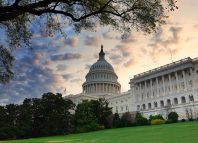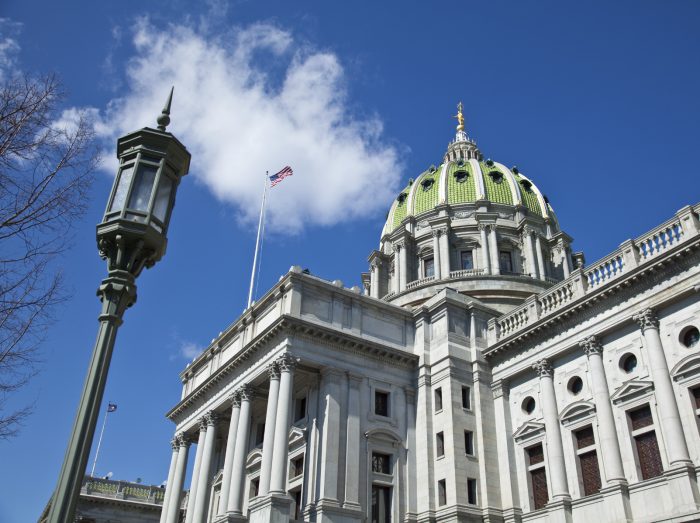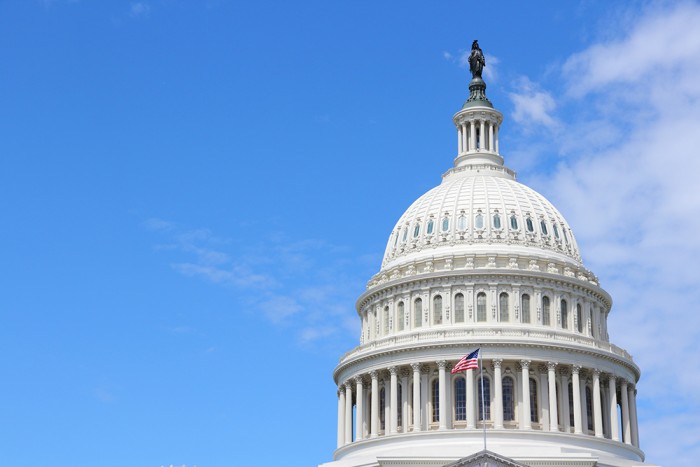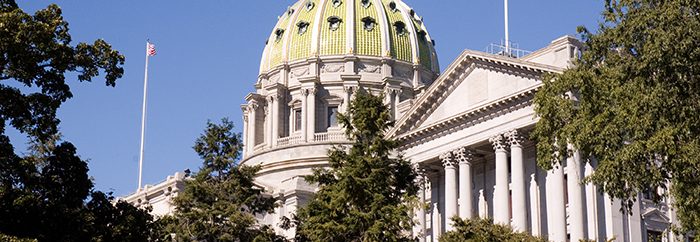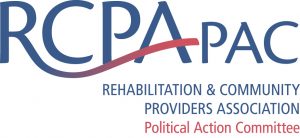DHS Proposed 2025/26 Budget Webinar Materials Now Available
Secretary Val Arkoosh and leadership from the Department of Human Services (DHS) hosted a webinar to discuss the proposed 2025/26 budget for the Department on Friday, February 7, 2025.
The recording is available here, and the PowerPoint has been made available.
RCPA will continue to update members on the budget as information becomes available. If you have further questions, please contact your RCPA Policy Director.
Secretary Arkoosh Reviews 2025/26 DHS Budget
The Department of Human Services (DHS) Secretary Val Arkoosh met with systems stakeholders to provide an overview of the Governor’s proposed 2025/26 DHS budget. The Secretary began by reviewing the accomplishments of DHS under the administration and highlighted areas around Medicaid, systems enhancements, and the expansion in the delivery of services to Pennsylvanians.
The projected spending across DHS showed an investment of $21.17B, with the following breakdowns:
- $7.13B for Long-Term Living;
- $6.4B for Medicaid/healthcare delivery;
- $3.22B for ID/A;
- $1.72B for Human Services and County Child Welfare; and
- $1.04B for Mental Health and Substance Use Disorders.
This budget number represents a $1.95B increase over last year’s executive budget. The most significant increases included:
- $927M for Long-Term Living;
- $7.23M for Medicaid/healthcare delivery;
- $1.84M for ID/A;
- $74M for Child Development; and
- $32M for Mental Health and Substance Use Disorders.
RCPA submitted questions during the webinar in an effort to gain greater clarity on the proposed $2.4B increase in the Health Choices capitation. Several questions remain unanswered, including:
- Are these dollars allocated towards physical health, behavioral health, or both?
- What is the spending strategy for the 2024/25 supplemental appropriations? Is that part of the $2.4B?
There was clarification on the proposed $170M increase in the ID/A budget, but Secretary Arkoosh stipulated that this was not new investments but rather funds to sustain last year’s increase.
The remainder of the webinar was spent outlining current DHS initiatives, including the Keystones of Health 1115 Waiver, which was approved in December 2024. This year’s priority will focus on reentry services as well as planning for future implementation. The Secretary concluded her comments supporting the minimum wage increase, reinforcing the workforce infrastructure, and tackling Commonwealth-wide challenges.
The DHS Bluebook is scheduled for release in the coming weeks and will provide line item details of the budget. RCPA will continue to work with DHS and PA legislators on the budget specifics and our ongoing advocacy efforts. You can view the DHS budget webinar here.
RCPA will continue to update members on the budget as information becomes available. If you have further questions, please contact your RCPA Policy Director.
RCPA 2025 Capitol Day Details
Advocate for yourselves and others by meeting with legislators directly! Take the opportunity to join RCPA as we hold our annual Capitol Day this year on Wednesday, March 26. We will hold a press conference in the Main Rotunda between 10:00 am – 11:00 am, which will include legislators and leaders in human services.
You can register for our Capitol Day press conference by contacting Christine Tartaglione. Please let us know if additional staff or colleagues within your organization are planning to attend Capitol Day with you.
RCPA requests that members schedule appointments with their Senate and House legislators directly to discuss the state budget, legislation, and regulations either prior to or immediately after our press conference. If you have issues scheduling an appointment with a legislator, please contact Jack Phillips, Director of Government Affairs.
We ask that you please use RCPA’s 2025 Legislative Priorities during your legislative visits. As an additional resource, members can visit the Pennsylvania Capitol website to locate parking and view maps of the building, and you may use the following resources for coordinating your day at the Capitol:
- RCPA Capitol Day Checklist
- RCPA Capitol Day FAQs
- RCPA Capitol Day Tips for an Effective Legislative Visit
- Capitol Day Legislator Meeting Request & Thank You Email Templates
If you have questions regarding our 2025 Capitol Day, please contact Jack Phillips.
Governor Shapiro Delivers 2025/26 Budget Address
Governor Josh Shapiro delivered his 2025/26 budget address to a joint session of the General Assembly at the State Capitol in Harrisburg. The Governor’s $51B budget plan seeks more money for underfunded public schools and public transit in his budget proposal unveiled Tuesday, while he is also hoping to win support for legalizing marijuana and introducing taxes on skill games viewed as competitors to casinos and lottery contests.
A key factor is that the Pennsylvania revenue for the fiscal year has flattened out, and without the American Recovery Act surplus and the Rainy Day Fund, expenditures related to “cost to carry”; that is inflation, are not projected to be met. Once those sources are used, they are gone, but the legislature could decide to spend an additional billion or two of General Fund revenue on an infusion into the Rainy Day Fund. While the legalization of marijuana and regulation of skill games could address some of this, both sources have unpredictable revenue returns.
The Governor’s proposed budget priorities align with several of the RCPA strategies as outlined in the 2025 Legislative and Administrative Priorities.
What was not clear were the defined spending pathways or line item allocations. RCPA is hoping that the DHS Budget Address on Friday from Secretary Dr. Val Arkoosh will provide clarification on the human services budget. It should be noted that at this point, while we understand the governor’s priorities, details are not yet apparent. In fact, many of the areas related to RCPA members have more questions than answers and will evolve as the discussion continues between the administration and the legislature.
Behavioral Health
As an example, one area of concern is that the Medicaid Behavioral Health Capitation system experienced a shortfall of several hundred million dollars in the current fiscal year. There are significant dollars noted in the various spreadsheets related to the capitation, but again the detail is not there. In one document, it is noted that “In total, over $2.5 billion is needed to meet actuarially sound rates in the remainder of the 2024/2025 fiscal year and into the 2025/2026 budget year.” Is it solely to replenish lost dollars for the primary contractors? What is the breakdown between behavioral health and physical health? RCPA will be looking for more clarity.
Legalization of adult-use recreational marijuana is a priority for the governor, who is estimating more than $500M in revenue in 2025/26. None of that revenue is projected to be shared, however, with the Department of Drug and Alcohol Programs.
The proposed budget would also expand existing loan forgiveness initiatives, to incentivize more health care providers and behavioral health specialists to take jobs all across Pennsylvania.
Intellectual and Developmental Disabilities
Additionally, there is no apparent delineation of funding for IDD services, and while it has a line item placeholder indicating a $175M increase, it remains unclear if this is new or previously allocated funds from last year’s budget. Or simply the cost of maintaining current programs but not new individuals or services.
School-Based MH Funding
Governor Shapiro is again proposing Physical Security and Mental Health funding in the FY 2025/26 budget, proposing $100M in funding to school districts across the Commonwealth. This proposal is flat funding from FY 2024/25 and, if enacted, new investments in school safety and mental health will total approximately $350M in the governor’s term to date.
County Funding
$20M is proposed in continued additional investment for county mental health based services funding. This would represent a total new investment of $60M over three years. While this marks the third year of increased funding to the counties, it remains far short of the needed investment for these critical services. It has been reported that there is the need to invest nearly a billion dollars to level set the current county based mental health system.
Early Intervention
Early Intervention will see a proposed increase after a year of no rate adjustments. OCDEL did complete a rate methodology study in 2024, but it is unclear regarding the impacts of the study on the new proposed budget. The overall proposed funding for Early Intervention Part C represents an increase over FY 2024/25 of $16M (+3.5%), including $10M to provide a rate increase for early intervention providers in Part C, birth to age three programming.
Other DHS Related Human Services Funding Areas:
- $10M in dedicated funding to support the 9-8-8 hotline network.
- $5.75M to expand discharge and diversion programs for individuals with mental illness in the
- criminal justice system.
- $4.8M to provide reentrants with MA services and continuous eligibility after incarceration. This is a component of the recently approved Section 1115 CMS Waiver, Keystones of Health.
- $5M to continue funding for walk-in mental health crisis stabilization centers supporting multiple counties.
DHS Budget Briefing Friday, February 7, 2025
Secretary Val Arkoosh and leadership from the Department of Human Services (DHS) will host a webinar to discuss the proposed 2025/26 budget for the department. The briefing will take place at 10:00 am on Friday, February 7. If you are unable to attend, the briefing will be recorded and available for viewing afterwards on DHS’ YouTube channel.
Use this link to register for the briefing. All who plan to attend must register individually. A link for the webinar will be sent Thursday evening. DHS encourages submission of questions ahead of the briefing so they can prepare as much information as possible. They will follow up on any questions that are not answered during the webinar.
(If the registration link above does not work, please try copying this link directly into your browser: https://forms.office.com/Pages/ResponsePage.aspx?id=QSiOQSgB1U2bbEf8Wpob3tuk6VNEbjZIvvnDA4XOB-dUNVlFUVRMQUVBMzhPWVpRNjNFODQ1OUlaTy4u)
RCPA will continue to update members as further details develop on the proposed budget, including information on specific policy areas. If you have additional questions, please contact your respective RCPA policy director.
Updated Guidance on Federal Funds Freeze: January 30, 2025
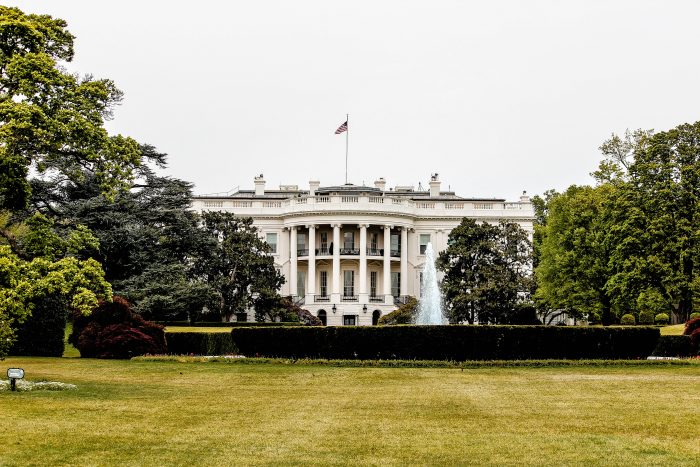
RCPA provided some late updates yesterday on the Federal funding freeze, and late last evening, the National Council for Mental Wellbeing provided members a legal interpretation on the rescinding of the Office of Management and Budget (OMB) M-25-13 and the issuance of the new memorandum M-25-14.
The following is from the National Council:
On Wednesday afternoon, the White House Office of Management and Budget issued a new memorandum—M-25-14 — that rescinded the pause to federal funding contemplated in a previous memorandum first issued on Monday night.
The new memorandum, which was directed to “heads of executive departments and agencies,” features a two-sentence statement reading: “OMB Memorandum M-25-13 is rescinded. If you have questions about implementing the President’s Executives Order, please contact your agency General Counsel.”
In the short term, M-25-14 certainly relieves some of the confusion and anxiety that swept across the federal grants world since Monday night. Our previous client alerts have chronicled the chaos that emerged late Monday and throughout the day on Tuesday.
However, in our review, there are still five key Executive Orders issued by the Trump Administration not affected by the rescission of M-25-13. Those EOs include:
- Reevaluating and Realigning United States Foreign Aid, directly addressing foreign assistance funding;
- Unleashing American Energy, freezing all programmatic funding for “green new deal” programs;
- Protecting the American People Against Invasion, freezing Department of Justice and Department of Homeland Security programs and contracts pending a review of immigration enforcement programs;
- Ending Radical and Wasteful Government DEI Programs and Preferencing, terminating all DEIA programs and activities in the federal government; and
- Ending Illegal Discrimination and Restoring Merit-Based Opportunity, terminating all DEIA-funded grant programs and contracts.
While the upheaval following the issuance of M-25-13 may have prompted the Trump Administration to change course and move away from pausing all federal funding, we certainly anticipate that federal grants in the above-listed areas will remain subject to a comprehensive review and new standards. Federal grantees with programs in these specific areas should undertake a detailed review and be prepared for future agency actions.
Federal grantees should continue to keep apprised of the Administration’s actions, orders, and statements relating to federal funding — as the rescinded memorandum likely foretells future clashes as the Administration attempts to exert control over federal spending.
Chuck Ingoglia
President & CEO
Strategic Leadership
National Council for Mental Wellbeing
In addition, ANCOR sent the following information last night:
In what’s turning from a whirlwind couple of days into a whirlwind week, there were notable updates today on the OMB memo on the freeze of certain federal funding issued earlier in the week.
Today OMB withdrew the memo with a simple rescission statement after a federal judge temporarily blocked the funding freeze for open awards and current spending. The order remains in effect until February 3 when a hearing is scheduled to determine next steps.
As you may have seen, later in the day, Press Secretary Karoline Leavitt posted to X, “[t]his is NOT a rescission of the federal funding freeze. It is simply a rescission of the OMB memo. Why? To end any confusion created by the court’s injunction. The President’s EO’s on federal funding remain in full force and effect, and will be rigorously implemented.” Without further specificity regarding the implicated executive orders, the situation remains fluid with the potential for later memos or other interpretive guidance which the White House maintains is authority held within the executive branch.
In other litigation, U.S. District Judge Jack McConnell made statements in court today indicating that another restraining order may be coming. With the memo rescinded, the Department of Justice Special Counsel argued the case is no longer relevant. However, the judge did not appear persuaded and asked for a draft protective order for response and consideration.
We’ll continue to keep you posted as we know more and hope to see you Friday (1/31) for our extended Members-Only Weekly Briefing at 12:30 pm ET to provide updates and review all available information together. See login information below:
Join Zoom Meeting: ancor-org.zoom.us/j/…
Meeting ID: 870 2745 7284
Passcode: 977618
In recent communications from the OMB, these actions will not impact programs that provide direct benefits to individuals and are explicitly excluded from the pause and exempted from this review process. In addition to Social Security and Medicare, already explicitly excluded in the guidance, mandatory programs like Medicaid and SNAP will continue without pause.
RCPA will continue to communicate new developments with members as they emerge. If you have any questions, please contact your RCPA Policy Director.
OMB Memorandum Rescinded
RCPA, in working with ANCOR and the National Council for Mental Wellbeing, has learned that the Office of Management and Budget (OMB) has rescinded the memorandum sent yesterday by the Trump Administration, which announced the pausing of distribution of federal funding.
Per National Council:
Moments ago, the Office of Management and Budget (OMB) reversed course on a memorandum instructing all agencies to temporarily pause the obligation and distribution funds for a wide swathe of federal programs, officially rescinding the order that spurred widespread confusion yesterday. The White House’s decision to rescind the memo comes after U.S. District Court Judge Loren AliKhan issued a brief temporary stay that would have delayed OMB’s directive from taking effect until Monday, Feb. 3, with the potential for further legal action beyond that date.
In addition, ANCOR reached out to members and said the following:
Hi everyone,
We wanted to make sure to update you that today OMB rescinded its memo from January 27 requiring a freeze on federal financial assistance: White House rescinds freeze on federal grants – The Washington Post. You can see the notice of rescission here. Thank you to all of you who reached out and helped push back on this yesterday! We are so grateful for your advocacy.
Thanks,
Elise
——————————
Elise Aguilar
Senior Director of Federal Relations
American Network of Community Options and Resources
Alexandria, VA
703-535-7850
RCPA will continue to communicate with our members as developments occur or if changes are made. As a reminder, this will not affect funding services that directly impact individual Americans, including Medicaid, Medicare, Social Security, and SNAP. If you have any questions, please contact your RCPA Policy Director.
Update Regarding Federal Funding Freeze
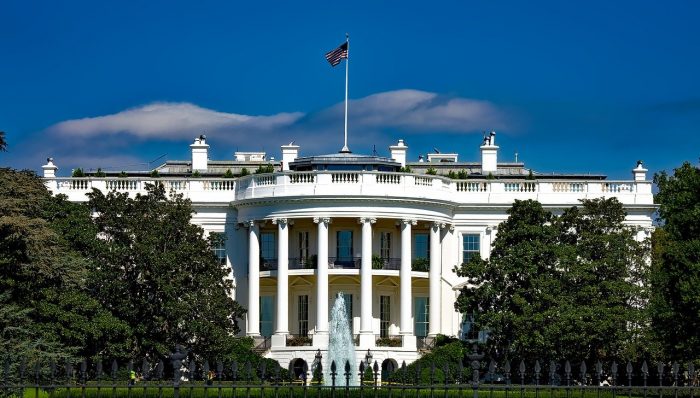
RCPA continues its efforts to update members on the White House funding freeze while partnering with the National Council for Mental Wellbeing and ANCOR in examining the implications stemming from the White House Office of Management and Budget’s (OMB) January 27 memorandum temporarily freezing federal disbursements to many federal programs.
The National Council has provided the following update:
Federal agencies have been directed to fill out a spreadsheet as part of an analysis by Feb. 7 to ensure compliance with the president’s most recent executive orders. This is a breakdown of which health programs are included in this latest action.
Notably, we recognize conflicting guidance has been issued. While the above report identifies Medicaid programs, a Q&A document from the administration notes that Medicaid will continue without pause. As of Tuesday morning, all 50 states reported outages of their Medicaid online portals, and the Trump administration has stated they are aware of the outages and expect the portals to be back online shortly.
Also, several groups have taken action to block this funding freeze. As of this writing, several Democratic state attorneys general said they would ask a court to block the freeze from taking effect. Several groups representing nonprofits, public health professionals and small businesses have already filed suit in D.C. asking the court to prevent the freeze from continuing. On Tuesday evening, U.S. District Court Judge Loren L. AliKhan issued a temporary stay on the funding freeze until Feb. 3 at 5:00 pm ET.
The funding freeze may lead to project delays or cancellations, resulting in layoffs of workers involved in these programs, and may ultimately increase the unemployment rate, making it vital lawmakers understand the impact of this freeze on communities across the country.
Most notable are the concerns with the intersects of Medicaid funding though the information that has been released. The Q&A document states:
Q: Is this a freeze on benefits to Americans like SNAP or student loans?
A: No, any program that provides direct benefits to Americans is explicitly excluded from the pause and exempted from this review process. In addition to Social Security and Medicare, already explicitly excluded in the guidance, mandatory programs like Medicaid and SNAP will continue without pause.
RCPA will continue to communicate new developments with members as they emerge. If you have any questions, please contact your RCPA Policy Director.
Request for Your Support for the RCPA PAC
The Rehabilitation and Community Providers Association Political Action Committee (RCPA PAC) is asking members to consider making a personal contribution to the PAC. With these donations, we have been successful in supporting legislative leadership who understand the severe challenges facing many of our providers. These representatives are willing to stand up for our issues as we fight to move Pennsylvania forward.
We urge you to view our 2025 Legislative & Administrative Priorities to see how RCPA is and will continue to work for you. We are able to achieve these goals thanks to our members’ dedication and contributions.
Make an online contribution and advocate for yourself today. While the request is voluntary, we encourage you to make a contribution of $100, $250, $350, $500, or more to the RCPA PAC. If you are interested, you can also consider making a recurring monthly donation.
If you have any questions regarding the RCPA PAC or making a donation, please contact Jack Phillips, Director, Government Affairs.

